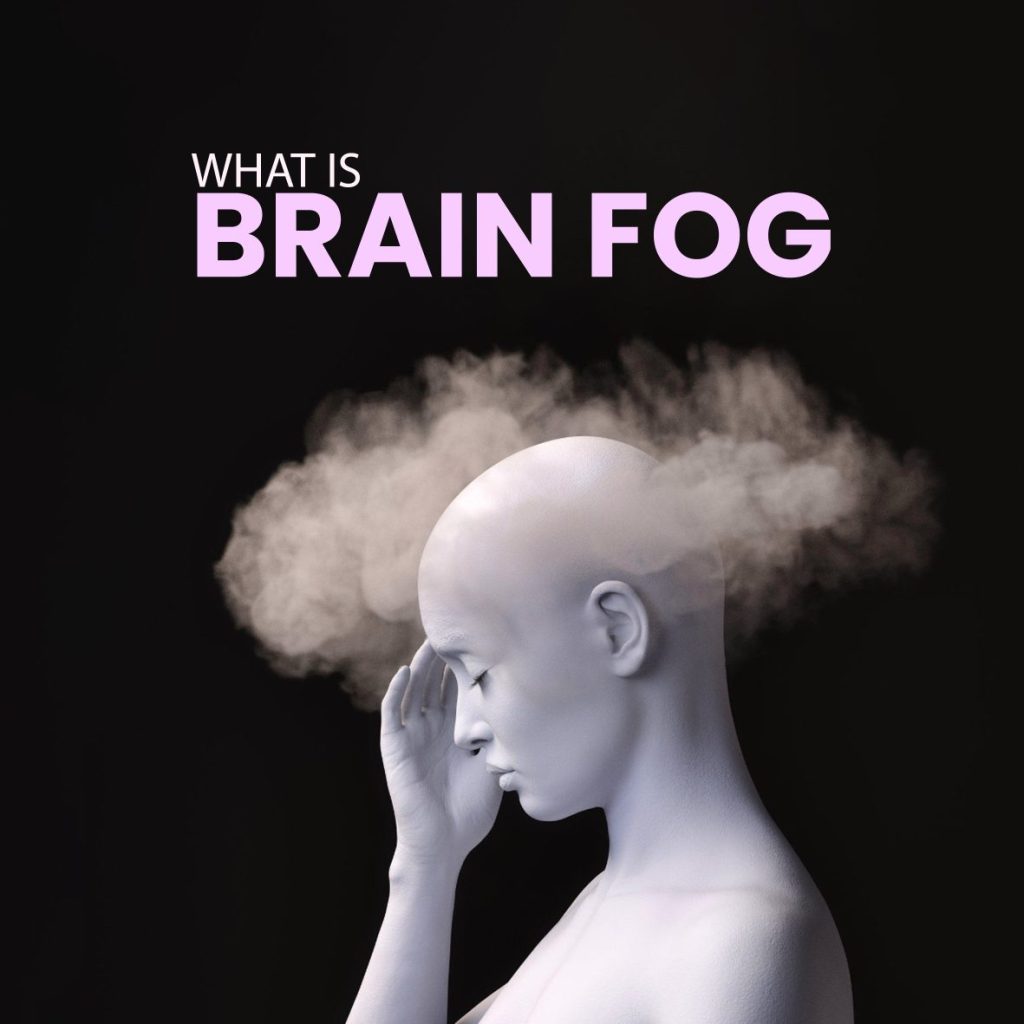
What Causes Brain Fog
What Causes Brain Fog?
Have you ever felt like your thinking was clouded or fuzzy, almost like you were walking through a mental fog? That sluggish, spaced-out feeling is commonly referred to as “brain fog.” It can involve confusion, lack of focus, forgetfulness, and just an overall sense of cognitive impairment. What causes brain fog?Brain fog impacts your productivity, memory, and ability to think clearly. Understanding potential causes can help identify ways to regain your mental sharpness.
Medical Conditions
Certain medical issues are known to directly contribute to or worsen symptoms of brain fog. What causes brain fog?Some prime culprits include:
Thyroid Disorders
An underactive or overactive thyroid gland can significantly impact cognitive function and energy levels. Thyroid hormones play a crucial role in metabolic processes throughout the body, including the brain. Too little or too much thyroid hormone often manifests as brain fog.
Autoimmune Diseases
Autoimmune conditions like lupus, multiple sclerosis, rheumatoid arthritis, and fibromyalgia frequently involve brain fog as a symptom. The root cause likely relates to widespread inflammation damaging brain cells and altering neurotransmitter function.
Diabetes
Both Type 1 and Type 2 diabetes increase the risk of brain fog and cognitive impairment when poorly controlled. Chronic high blood sugar levels negatively impact the brain’s ability to effectively use glucose for fuel and proper neuron firing.
Sleep Disorders
Not getting sufficient quality sleep can absolutely cloud your thinking and focus. Sleep apnea, insomnia, and other conditions that prevent restorative rest often produce persistent brain fog by impacting memory, concentration, and cognition.
Nutritional Deficiencies
Lacking key vitamins, minerals, and nutrients can starve your brain of compounds it needs for peak performance. Deficiencies in iron, vitamin B12, vitamin D, and omega-3s are potential contributors to brain fog.
Depression and Anxiety
Mood disorders like depression and anxiety commonly involve cognitive symptoms like trouble concentrating, mental slowness, forgetfulness, and brain fog. This relates to their neurological impacts on brain chemicals and circuitry.
Head Injuries
Traumatic brain injuries from concussions, accidents, or other head trauma frequently cause long-term issues with memory, focus, comprehension, and clearing your thoughts – classic brain fog.
Infection and Illness
When your body is fighting off an illness, infection, or virus, energy gets diverted away from peak brain functioning. This can absolutely cloud your thinking and produce brain fog as a temporary symptom while recovering.
Cancer and Treatments
Both cancer itself and many cancer treatments like chemotherapy negatively impact cognitive abilities like memory, attention, comprehension, and processing speed – essentially brain fog.
Lifestyle Factors
What causes brain fog?In addition to medical causes, certain external lifestyle habits and circumstances can induce or worsen symptoms of brain fog:
Poor Diet
A diet lacking in essential nutrients, high in sugar/refined carbs, and low in fiber can deteriorate cognitive performance over time. Prioritizing whole, nutrient-dense foods promotes a clear head.
Chronic Stress
When the body experiences chronic high-stress levels, it exists in a constant state of “fight or flight.” This suppresses higher cognitive processes to reallocate resources elsewhere, fogging up thinking.
Lack of Exercise
Not getting regular physical activity reduces blood flow, nutrient transport, and chemical production that keeps your brain firing at full capacity. Inactivity often correlates with cognitive sluggishness.
Dehydration
Even mild dehydration can rapidly dull your focus, memory, mood, and processing abilities. Your brain requires adequate hydration to operate optimally without fatigue and murkiness.
Sleep Deprivation
Sleep debt and fatigue take a major toll on cognitive performance. Not getting 7-9 hours of quality sleep per night over time gradually erodes concentration, recall, reasoning, and overall mental clarity.
Alcohol and Drugs
Alcohol is a central nervous system depressant that impairs brain function during and after intake. Many recreational drugs also interfere with dopamine, cognition, and neurotransmitters, causing mental cloudiness.
Hormonal Changes
Fluctuating hormones from menstrual cycles, birth control, pregnancy, thyroid issues, menopause, and andropause influence brain chemistry and function. This can contribute to brain fog episodes.
Environmental Toxins
Exposure to mold, pollution, heavy metals, solvents, chemicals, or other environmental toxins may impair cognition and concentration over time as the brain becomes overburdened.
Underlying Fatigue
Simply feeling overly fatigued or exhausted, even without an identifiable medical reason, commonly translates to cognitive fatigue. Persistent tiredness = persistent brain drain and fogginess.

Managing Brain Fog
While occasional mild brain fog is normal, frequent or severe cognitive impairment warrants attention. Some key strategies to help minimize and overcome brain fog include:
Get Adequate Sleep
Prioritize 7-9 hours of quality sleep per night to allow your brain to recharge and reset. Fatigue quickly demolishes mental sharpness.
Stay Hydrated
Ensure you’re consuming enough fluids, especially water. Even mild dehydration rapidly clouds cognition.
Exercise Regularly
Aerobic activity increases blood flow, oxygen, and nutrients delivered to your brain while releasing focus-enhancing chemicals. Aim for 150 minutes per week.
Try Brain Games
Activities that challenge your working memory, processing speed, and mental flexibility can help combat brain fog by exercising cognition.
Eat a Nutrient-Dense Diet
Emphasize foods rich in antioxidants, healthy fats, vitamins, and minerals that nourish your brain. Avoid heavy processed, sugary fare.
Reduce Stress
Chronic stress impairs your brain’s ability to function properly. Try relaxing activities like yoga, meditation, massage, or deep breathing.
Limit Alcohol and Drugs
Cut out substances that act as central nervous system depressants. They directly contribute to brain fog.
Consider Supplements
Some people find benefits from taking herbs, vitamins, or nutrients that may aid focus like ginkgo biloba, rhodiola, lions mane, vitamin B12.
Seek Medical Treatment
If brain fog persists chronically, see a doctor to identify and treat any underlying medical issues that may be causing cognitive dysfunction.
By identifying and addressing potential root causes, you can help restore consistent mental clarity and sharpness. Don’t just accept the foggy feelings – strive for an optimally-functioning brain!

Conclusion
Brain fog can be caused by various factors, including sleep deprivation, stress, hormonal changes, nutritional deficiencies, certain medications, and underlying health conditions. Understanding the potential triggers of brain fog is essential in addressing its effects and finding appropriate solutions.
By adopting healthy lifestyle habits such as getting enough sleep, managing stress, maintaining a balanced diet, and seeking medical advice when necessary, individuals can minimize the occurrence of brain fog and promote mental clarity. It’s important to prioritize self-care and take steps to address any underlying health issues contributing to brain fog to support overall cognitive function and well-being.



